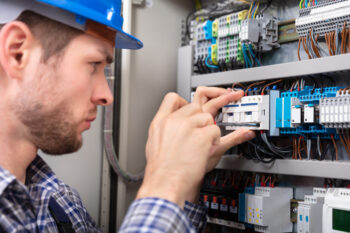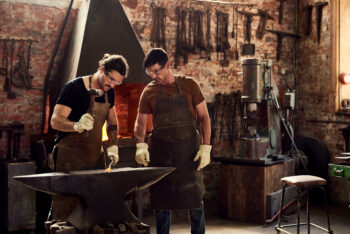Have you ever thought about how many plumbers there are in Italy? At the end of 2018 there were over 64,000 companies active in the sector, according to Youcamera reports, which are mostly concentrated in large cities such as Rome, Milan and Turin. Furthermore, this profession is in great demand and even, based on what emerges from the Unioncamere and Anpal report, there is difficulty in finding young plumbers.
And if we look at the data by gender, not very recent because they date back to 2010 but still indicative, in Italy there were only 140 plumbers, or 0.3% of the total in the sector. To say it is the Chamber of Commerce of Monza and Brianza.
Having made this overview necessary to frame the profession, which is in demand and profitable, in this article we will delve into what a plumber does, what plumbing problems he solves and the tasks that characterize the profession.
We focus only on the activities that concern houses, therefore the residential sector and the related interventions, and not on other types of buildings such as industrial ones.
In the article, you can also find out how much and how a plumbing technician can be useful in the sustainability sector.
Shall we proceed? 😊
ARE YOU LOOKING FOR A PLUMBER?
Who is and what does the plumber do
A plumber is a person who works as an employee or as a freelancer in the plumbing and heating sector and deals with the installation and maintenance of plumbing, heating and cooling systems.
If we look at the etymology, the word plumber comes from the Latin hydraulĭcu(m) which in turn comes from the Greek hydraulos (flute, water pipe).
What the plumber does: the plumbing problems he solves
Very often the plumber is called, and with a certain urgency in emergency mode, when there is damage, a breakdown or a malfunction in the house.
Let’s see in detail what are the problems that the plumber solves urgently:
- water leaks, even in the wall with the presence of mold and damp spots;
- pipe rupture;
- blockage of pipes;
- malfunction or failure of the boiler, water heater (boiler) and heating;
- malfunction or failure of the cooling system (air conditioning and air conditioning);
- damaged sanitary ware to be replaced.
The plumber, therefore, with the appropriate instrumentation is able to identify the problem, the cause and to solve everything in the shortest possible time with problem solving skills.
What does the plumber do: the other tasks
A plumbing professional, however, does not only solve hydraulic problems, breakdowns and malfunctions in an emergency. There are numerous other technical tasks that pertain to the profession. Let’s explore them now!
- ordinary maintenance and repairs (replacement of filters, gaskets, toilet cisterns, pipes, fittings, taps, counters,…);
- maintenance and control of systems (boiler, heating, air conditioning, water heater, irrigation…);
- drain maintenance;
- technical design of the systems (hydraulic, heating, irrigation and cooling), also with the use of software;
- installation of systems, both for new homes and for homes under renovation;
- sewage connections;
- electrical appliances and bathroom fixtures;
- plant testing.
Furthermore, a freelance plumbing technician, without a structured company, must also deal with the formulation of estimates and accounting.
And if he works on construction sites, he has to interface and collaborate with people from other sectors in the construction field.
Finally, a professional must know the current building and hygiene regulations (certifications and permits) and comply with the standards to work safely and avoid accidents and injuries.
Plumbing skills
To perform their job in the best possible way, a person who is an expert in plumbing and heating must possess the necessary skills. Let’s see what are the main ones:
- manual dexterity;
- technical knowledge and skills for laying, installation, welding;
- physical prowess;
- communication and relational skills with customers and with the construction sector team;
- autonomy in work;
- problem solving, analytical and quick problem solving skills;
- computer skills for the use of design software.
What does the plumber do for the environment and sustainability?
You may have never thought about it, but being a plumber is a profession that can help fight the climate crisis. Because, with his work, he identifies water and energy waste due to obsolete systems that leak water, or that consume a lot of energy and gas, more than they should.
A maintenance and control intervention, therefore, can help you limit consumption, doing both your wallet and the environment good.
Furthermore, the plumber can install “green” plumbing and heating systems that involve less material to be disposed of and more recyclable, energy efficiency and reuse of drinking water.
Are you looking for a plumber in the area or are you looking for work as a plumber?
In this article we have seen not only what the plumber does in an emergency, other tasks, skills and also how useful it can be for sustainability.
If you are looking for a job as a plumber close to home, we have good news: sign up for free with Jopla and discover all the benefits you can get, starting with free insurance to work in safety and carefree administration of contracts and payments.
If, on the other hand, you are looking for a plumber in the area for repairs, maintenance, installations, find the expert near you.


